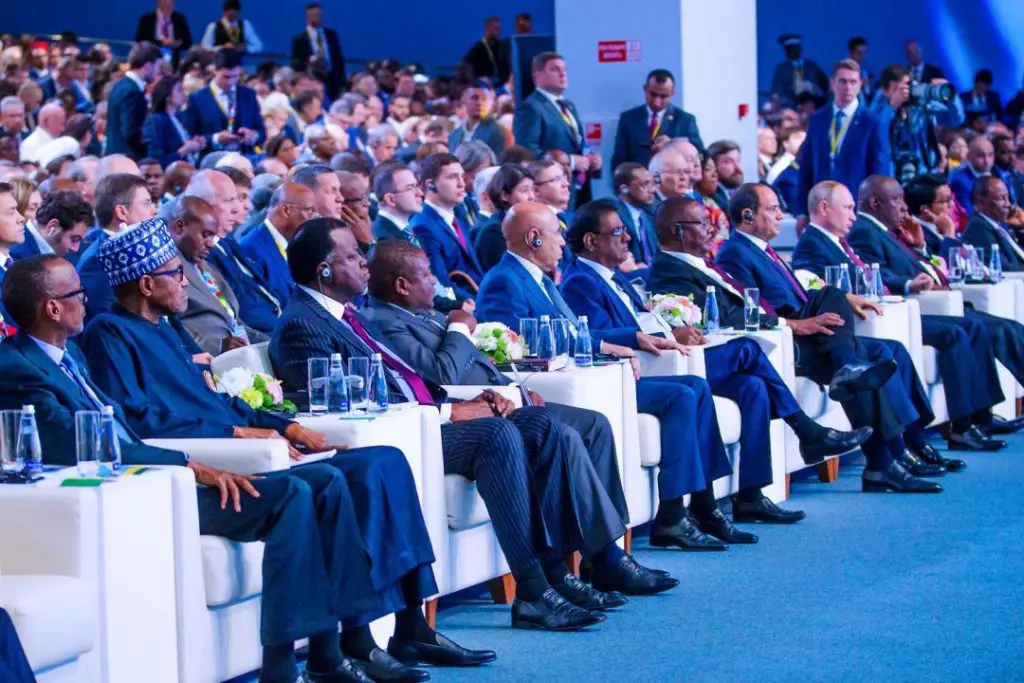More than 50 African leaders made their way to the Black Sea resort city of Sochi on Oct. 23-24 for the inaugural Russia-Africa summit.
The summit is widely seen as a reflection of Russia’s push for economic and military influence in Africa. More than 3,000 delegates from African countries and Russia are at the summit to discuss everything from nuclear energy to natural resources extraction.
All 55 African states sent a representative to the meeting, including 43 heads of state or government, according to Kremlin advisor Yuri Ushakov.
“We currently export to Africa $25 billion worth of food — which is more than we export in arms, at $15 billion. In the next four to five years I think we should be able to double this trade, at least,” Putin said.
Russian President Vladimir Putin met with his Egyptian counterpart Abdel-Fattah el-Sissi before the two leaders opened the first-ever Russia-Africa Summit on Wednesday.
Areas of investment
Russia has dominated arms sales in Africa but this time, Putin has promised further African cooperation without “political or other” interference. This comes as a reassurance to African states who have previously expressed concerns about dependence on China.
Russia is hoping to sign a potential military cooperation agreement with Ivory Coast. The West African country is expected to send a delegation of 70 people to Sochi, including President Alassane Ouattara.
In addition to “military and security cooperation” with Africa, Putin also pledged Russian commitment to combat the Ebola virus with aid, and the training of “African cadres” by Russian universities.
“Joint projects are underway in extractive industries, agriculture, healthcare and education,” Putin said in his opening remarks.
Playing catch-up with China
Russia had played a more crucial role in the continent during the Soviet era, supporting independence movements and training government leaders in former Soviet client states such as Angola and Ethiopia.
Moscow’s relations with Africa deteriorated after the fall of the Soviet Union in 1991, with China taking over as the continent’s key foreign business partner.
In 2000, Beijing established the Forum on China-Africa Cooperation, pledging tens of billions of dollars into Africa.
Russia-Africa Summit in Photos
Photos courtesy: Mark-Anthony Johnson
Article by Mark-Anthony Johnson, CEO at JIC Holdings
JIC Holdings is an innovative private holding company established in 2009 by its CEO, Mark-Anthony Johnson, to seize developing opportunities in emerging and frontier markets and has since grown into an international asset and investment management company with offices, associates and investments around the globe.
